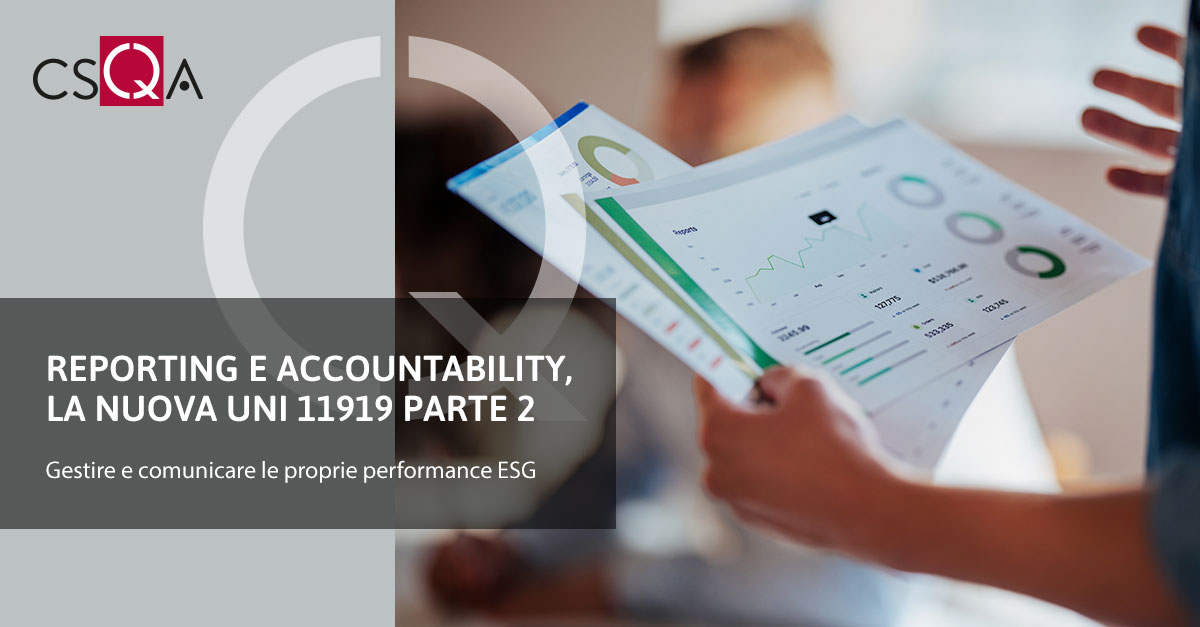 UNI has published part 2 of the UNI 11919 standard.
UNI has published part 2 of the UNI 11919 standard.While Part 1, published in 2023, provides concrete application guidelines for UNI EN ISO 26000 on Corporate Social Responsibility, Part 2 focuses on a specific aspect: the definition of reporting and accountability processes.
These are undoubtedly complex and multifaceted processes, which constitute a report and, at the same time, "a forecast of policies, actions and activities" implemented on the basis of an overall vision of sustainability.
The goal, therefore, can only be to offer reliable guidance for organizations operating based on value and governance assumptions geared toward a sustainable development model. In this sense, the standard does not define requirements but provides guidance for concretely addressing sustainability reporting.
It must be said that, in light of the current legislative context, the value of UNI 11919-2:2025 is more significant than ever.
At a European level , in fact, the current, constantly evolving framework provides companies with a scenario that is not always easy to interpret.
As is known, the Corporate Sustainability Reporting Directive (CSRD) has established the obligation for companies to communicate in a detailed and transparent manner their activities and their related environmental, social and governance impacts , introducing common reporting models.
However, the European directive (as well as the entire system consisting of the CSDDD – the Corporate Sustainability Due Diligence Directive, the European Taxonomy – the classification system established by EU Regulation 2020/852, and the so-called EFRAG standards on sustainability reporting) is currently being revised with a view to simplifying the regulatory framework.
To this end, the European Commission has presented the Omnibus Package , which includes two proposals in particular: one aimed at postponing the implementation deadlines (the “Stop-the-Clock Directive” (EU 2025/794)), the other aimed at simplifying the content and scope of the directives and regulations.
In fact, the Stop-the-Clock Directive has already established the timeframes (thanks to its adoption and entry into force in 2025) and will be subject to implementation by the Member States, while the substantial changes remain under negotiation.
In this context, technical standards can represent a particularly suitable practical tool for providing operational guidance —valid at national, European, and international levels—that helps define the key steps to follow to build a coherent and effective internal reporting, accounting, and accountability process.
UNI 11919-2 responds to this need, helping organizations achieve the expected outcomes of their reporting process by proposing and defining a correct methodology, identifying appropriate metrics , and identifying a series of both general and specific KPIs. (Source: https://www.uni.com/ )